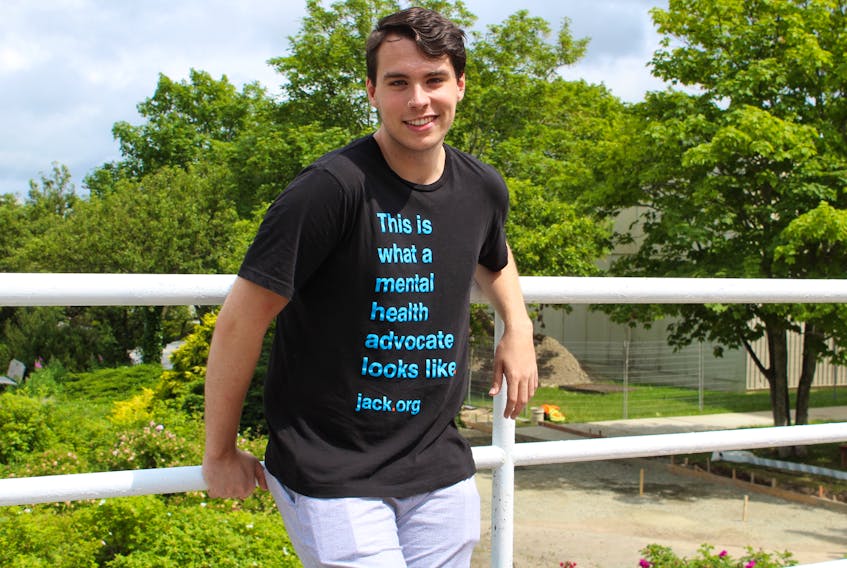ST. JOHN'S, N.L. — Canada Day was barely out of the way and stores everywhere were already promoting back to school sales.
For many, that may seem like no big deal, but for the nearly 30,000 students who will study in post-secondary schools across the province, the thought of that process is stress-inducing.
Lucas Walters, a recent Memorial University graduate, a "Jack Talks" speaker and a youth mental health advocate with Jack.org, took time Tuesday to outline the various things those students can expect when they head back to the classroom.
“There are a lot of big issues these students will face that cause mental health anguish, starting with academic pressure,” Walters said.
“A study (2019 Youth Voice Report) we are due to release later this month shows that 81 per cent of students will suffer some form of stressor and academic pressure is one of the leaders.
Other stressors include deadlines, workload changes, changes in years of study, studying for finals, etc. (and) all lead to mental health issues,’’ he added.
Walters said all those things pile up and cause issues for one in five students, and there are a number of recommendations to ensure students are able to stay ahead of them.
He said being your own advocate is important.
“Students should take the time to find out where they can get help. There are a host of places on campuses that can provide counselling services,’’ he said.
“That way you have a fail-safe program to get that help and if you have an issue there is X, Y and Z places you can go.’’
While it may be intimidating or almost the unthinkable, students shouldn’t be afraid to talk to their professors, Walters said. They can help perhaps in a classroom setting or lead students in the right direction to get specific help.
He said it is also important for students to focus on self-care and look after themselves. Sticking to basics, like getting a good night’s sleep, eating properly, spending time with friends and not shutting themselves off from outside life, are important to maintaining a proper balance.
“You also should look out for your friends. They are facing their own stressors and hopefully you can keep an eye on them to ensure there are no behaviour changes which could lead to worse things,’’ he said.
Jack.org is set to release its 2019 Youth Voice Report, a report that surveyed youth between 15-27 years old across Canada in order to determine what factors create mental health stress and identify what the barriers are to seeking help — for both themselves and their peers.
Jack.org is a charitable organization training young leaders to revolutionize mental health across the country.
More than 2,500 young leaders nationwide are supported through Jack.org, which strives to educate and empower youth at schools and in communities by employing messages from its Jack.org website.
Related









